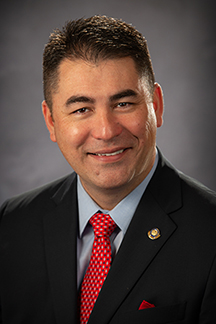By Matt Young, WV Press Association
CHARLESTON, W.Va. – The Senate Health and Human Resources Committee, on Thursday, heard testimony regarding SB 273, which addresses the allocation of child protective services (CPS) workers in individual counties.
As explained by Senate Counsel Cindy Dellinger, the introduced bill realigns, “the Office of the Bureau for Social Services and the Office of the Commissioner. The bill provides that staffing of the offices shall be based on the 2020 census.”
Dellinger further explained that the bill does not stipulate salary uniformity, meaning agencies are not required to offer or provide the same rate of pay in different geographic regions across the state for similar positions.
“In the Eastern Panhandle, and, to an extent in the Northern Panhandle, there are market issues that cause pay disparities there,” Dellinger noted. “So that exists really in the panhandle areas. For those positions, there is no right to a grievance if a pay disparity exists.”
According to Dellinger, a Committee Substitute for SB 273 is pending, and would add, “Language to the CPS staffing section that requires the commissioner to report the CPS allocation annually to LOCHHRA (Legislative Oversight Committee on Health and Human Resources Accountability).”
“The original language requiring the allocation to be based on census data is kept,” Dellinger said. “This just adds an additional reporting requirement to LOCHHRA.”
At the conclusion of Dellinger’s explanation, Sen. Patricia Rucker, R-Jefferson, requested clarification, asking, “We’re not creating a new commissioner – this is the commissioner we currently have and it is now being put into code?”
Dellinger confirmed that SB 273 does not call for the creation of a new position, noting that former House of Delegates member Jeffrey Pack was named Commissioner of the Bureau for Social Services in July of 2022.
SB 273 was adopted by the committee and passed to the full Senate with recommendation that it pass.
Also on the committee’s agenda was HB 2029, which seeks to repeal, “The creation of an all-payor claims database.” The bill was passed unanimously by the House of Delegates on Jan. 19.
“The all-payor claims database, what was that?” Sen. Tom Takubo, R-Kanawha, asked after the bill was explained.
“The purpose of the database was to collect data from health insurance companies,” Dellinger replied. “The mandate was for health insurance companies to submit data to the Secretary of the DHHR (Department of Health and Human Resources).”
Sen. Michael Maroney, R-Marshall, then requested Dellinger provide some “back story” for the bill, to which Dellinger said, “The history of this database is that it was never implemented over the years. It was established in 2011, but the data was never collected. So the statute was subsequently revised.”
“I wanted everyone to be aware of why this is being repealed, and why it was repealed 98 to nothing in the House,” Maroney noted. “On the surface, this database sounds like it would be a good thing, and that’s why we passed it in the first place.”
HB 2029 was adopted by the committee and passed to the full Senate with recommendation that it pass.
The final bill discussed was HB 2018, which was briefly explained by Senate Counsel Parker Zopp.
“The proposed law designates the managed care case coordinator as a multidisciplinary team member in cases involving either child abuse and neglect, or status offenders or delinquents,” Zopp said. “DHHR is the affected agency, and (HB 2018) would be effective upon passage.”
With no further discussion, HB 2018 was adopted by the committee and forwarded to the full Senate with a recommendation for passage.






